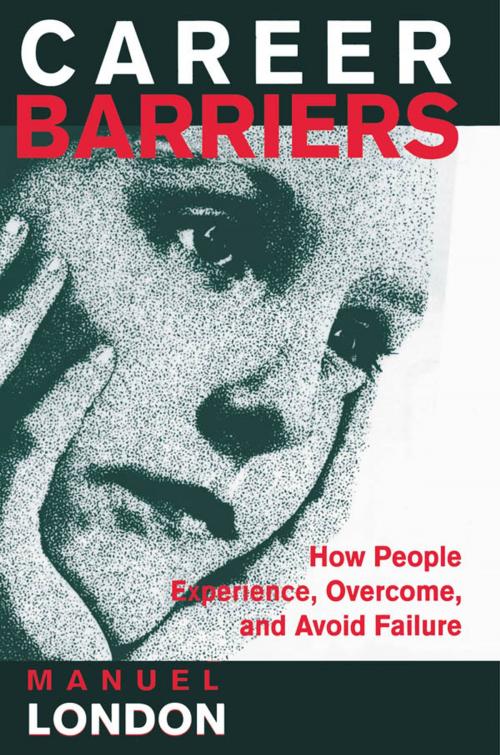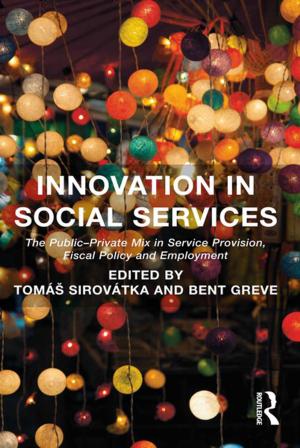Career Barriers
How People Experience, Overcome, and Avoid Failure
Business & Finance, Management & Leadership, Management| Author: | Manuel London | ISBN: | 9781317778516 |
| Publisher: | Taylor and Francis | Publication: | February 25, 2014 |
| Imprint: | Psychology Press | Language: | English |
| Author: | Manuel London |
| ISBN: | 9781317778516 |
| Publisher: | Taylor and Francis |
| Publication: | February 25, 2014 |
| Imprint: | Psychology Press |
| Language: | English |
This volume's goal is to help readers understand how people react to career barriers and how people develop constructive ways of coping with them. Drawing on original cases and data from interviews with people who faced different types of career barriers, the author describes how people react to, and make sense of, unfortunate events in their lives--and career barriers when they occur. He considers how and why some people cope constructively while others don't, and explores how resilience and support from others help get us through tough times and emerge with a sense of renewal and career growth. He suggests how we can manage career barriers and prepare for--or even prevent--career barriers through foresight, planning, and education. These methods also suggest what managers and organizations should do to help their employees who are or may soon be facing career barriers.
People can learn while facing the stress and self-questioning that accompany career barriers, but this is not an easy process. Learning requires considerable self-understanding and environmental support. The organization can play a vital role in limiting people's pain and creating opportunities. However, despite generous severance packages and outplacement services, many organizations have been little help to people who lose their jobs, suffer job stress, face unreasonably demanding bosses, or suffer from physical handicaps or chronic illnesses. Most of the burden falls on individuals and their families. Assistance can and should come from employers, government agencies, educational institutions, and religious organizations.
While the book focuses on the perspectives of people who have been or may be affected by career barriers, the material should be of interest to a broad range of readers --in particular, academics who study careers, practitioners in the fields of training and development, and government officials who set public policy that affects displaced workers.
This volume's goal is to help readers understand how people react to career barriers and how people develop constructive ways of coping with them. Drawing on original cases and data from interviews with people who faced different types of career barriers, the author describes how people react to, and make sense of, unfortunate events in their lives--and career barriers when they occur. He considers how and why some people cope constructively while others don't, and explores how resilience and support from others help get us through tough times and emerge with a sense of renewal and career growth. He suggests how we can manage career barriers and prepare for--or even prevent--career barriers through foresight, planning, and education. These methods also suggest what managers and organizations should do to help their employees who are or may soon be facing career barriers.
People can learn while facing the stress and self-questioning that accompany career barriers, but this is not an easy process. Learning requires considerable self-understanding and environmental support. The organization can play a vital role in limiting people's pain and creating opportunities. However, despite generous severance packages and outplacement services, many organizations have been little help to people who lose their jobs, suffer job stress, face unreasonably demanding bosses, or suffer from physical handicaps or chronic illnesses. Most of the burden falls on individuals and their families. Assistance can and should come from employers, government agencies, educational institutions, and religious organizations.
While the book focuses on the perspectives of people who have been or may be affected by career barriers, the material should be of interest to a broad range of readers --in particular, academics who study careers, practitioners in the fields of training and development, and government officials who set public policy that affects displaced workers.















